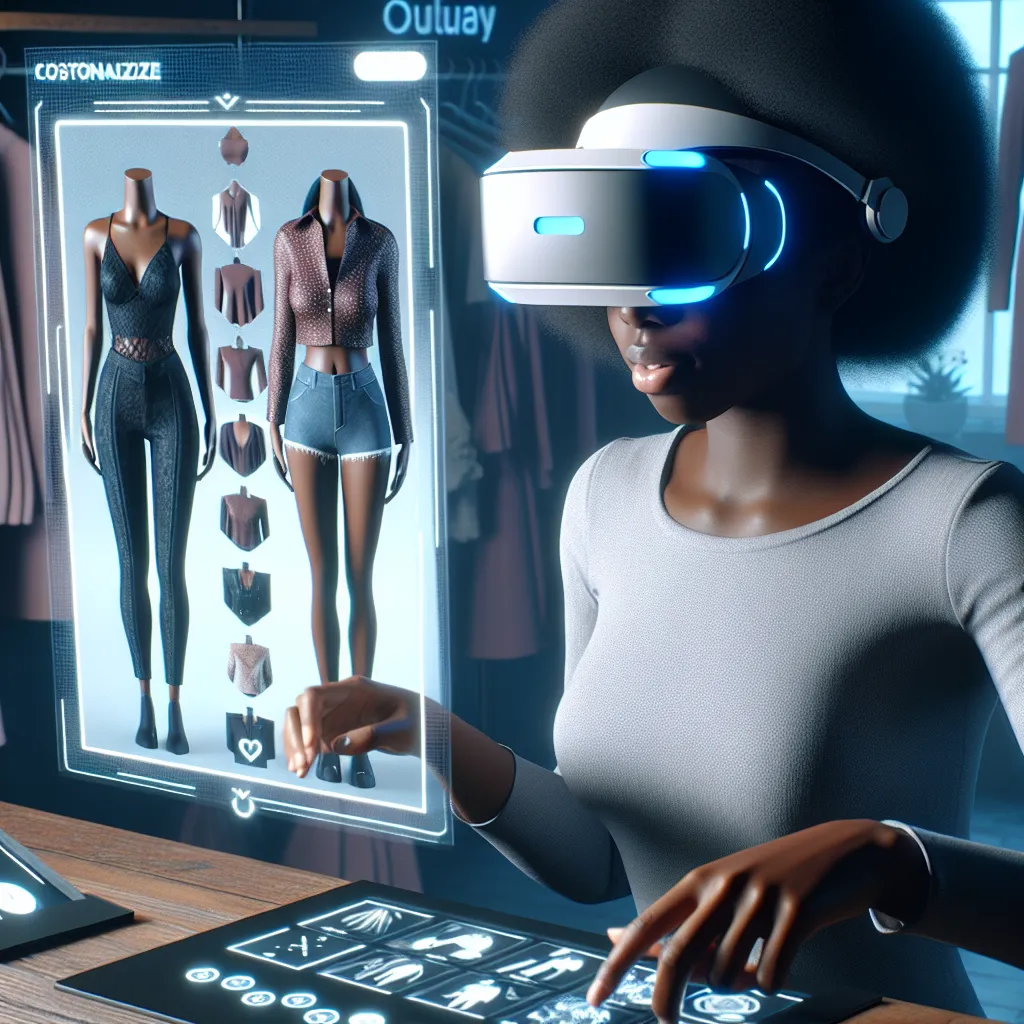Customizing Fashion: The Rise of Personalized Wardrobes
In today’s fast-paced world, the future of wardrobe is taking a significant shift towards personalized fashion trends. One of the key aspects driving this transformation is the rise of customized fashion, leading to the emergence of personalized wardrobes. This shift reflects a growing desire among consumers to express their individuality through their clothing choices and to move away from mass-produced, one-size-fits-all fashion.
Customizing fashion has become more accessible with advancements in technology and the rise of ecommerce. New tools such as virtual fitting rooms, 3D body scanning, and AI-powered recommendation systems are empowering consumers to create personalized wardrobes tailored to their unique preferences, body shapes, and style sensibilities. This trend is reshaping the fashion industry, as brands and retailers adapt to meet the growing demand for customizable clothing and accessories.
Consumers are increasingly seeking ways to stand out and express their personal style, and personalized wardrobes offer a solution to this growing demand. In the future, we can anticipate a shift towards fashion that is not only tailored to individual tastes but also takes into account factors such as sustainability and ethical production. As technology continues to evolve, we can expect even more sophisticated methods for customizing fashion, further fueling the rise of personalized wardrobes.
As personalized fashion trends continue to gain momentum, it is evident that the future of wardrobe is moving towards a more individualized and customizable approach. This shift is reshaping the fashion landscape, giving rise to a new era where personal expression and uniqueness take center stage in the world of fashion.
Tech-Driven Fashion: Innovations Shaping the Future of Wardrobe
In the rapidly evolving world of fashion, technology is playing an increasingly crucial role in shaping the future of wardrobe. From personalized styling to sustainable production, tech-driven innovations are revolutionizing the way we approach and interact with fashion trends.
One of the key aspects of tech-driven fashion is the rise of personalized recommendations and styling services. With the help of advanced algorithms and artificial intelligence, fashion brands and platforms are able to analyze individual preferences and behavior to offer tailored outfit suggestions. This shift towards personalized fashion not only enhances the shopping experience for consumers but also reduces the overwhelming abundance of choices, making it easier for individuals to navigate the ever-changing trends.
Furthermore, innovations in virtual and augmented reality are reshaping the way consumers engage with fashion. Virtual fitting rooms and AR-powered visualization tools allow shoppers to try on clothing and accessories without physically being present in a store. This not only streamlines the shopping process but also provides a more immersive and interactive experience, bridging the gap between online and offline retail.
In addition, the growing emphasis on sustainability in the fashion industry has prompted the development of tech-driven solutions for eco-friendly production and supply chain management. Advancements in materials science, such as the use of recycled fibers and 3D printing, are paving the way for a more sustainable approach to creating apparel. Moreover, blockchain technology is being employed to ensure transparency and traceability in the production process, enabling consumers to make more informed choices about the origins of their clothing.
Overall, the integration of technology into the fashion landscape is ushering in an era of personalized, sustainable, and tech-driven wardrobe choices. As these innovations continue to evolve, the future of fashion promises to be intricately intertwined with the advancements of technology, offering a dynamic and responsive wardrobe experience for consumers.
The Evolution of Personal Style: Trends Redefining Fashion Choices
As we look to the future of wardrobe, one of the most intriguing developments is the evolution of personal style and the transformative effect it has on fashion choices. The traditional approach of following broad fashion trends is gradually being replaced by a more personalized and individualistic outlook. This shift is largely driven by the increasing desire for unique and authentic self-expression.
With the advancement of technology, the fashion industry is witnessing a significant transformation. Artificial intelligence and big data analytics are being utilized to understand consumer preferences and behavior, leading to the creation of personalized fashion recommendations. This personalized approach allows individuals to curate their wardrobe based on their specific tastes, body shape, and lifestyle, rather than conforming to generic trends.
Furthermore, the concept of sustainability is playing a pivotal role in redefining fashion choices. The trend towards eco-conscious consumerism has led to a surge in demand for ethically produced and environmentally friendly clothing. As a result, personal style is increasingly being shaped by considerations of sustainability, driving the popularity of vintage clothing, upcycling, and slow fashion.
The rise of social media and the influence of digital fashion communities have also contributed to the evolution of personal style. Individuals are exposed to a diverse range of fashion inspirations, enabling them to explore different styles and aesthetics that resonate with their personality. This has culminated in a more inclusive and eclectic approach to fashion, with an emphasis on self-discovery and empowerment.
In conclusion, the future of wardrobe is undeniably intertwined with the evolution of personal style. The shift towards personalized fashion choices driven by technology, sustainability, and individual empowerment is reshaping the way we perceive and interact with clothing. This evolution signifies a departure from uniform trends towards a more diverse, conscious, and expressive sartorial landscape.
Sustainable Style: Building the Future Wardrobe with Eco-Friendly Fashion
In recent years, there has been a significant shift towards sustainable style in the fashion industry. As more people become aware of the environmental impact of fast fashion, there is a growing demand for eco-friendly and ethically produced clothing. This has led to the rise of personalized fashion trends that prioritize sustainability, allowing individuals to build a future wardrobe with a focus on eco-friendly fashion.
One of the key aspects of sustainable style is the use of organic and recycled materials in clothing production. Organic cotton, bamboo, hemp, and recycled polyester are just a few examples of materials that are being utilized to create stylish and environmentally friendly clothing. By incorporating these materials into their designs, fashion brands are able to offer consumers a wide range of options for building a future wardrobe with eco-friendly fashion.
In addition to the materials used, sustainable style also encompasses ethical manufacturing processes. This means ensuring fair wages and safe working conditions for garment workers, as well as minimizing the carbon footprint of the production process. Many fashion brands are embracing sustainable practices and transparent supply chains to meet the growing demand for eco-friendly fashion.
Furthermore, the concept of a future wardrobe extends beyond individual garments to include the idea of versatile and timeless pieces that can be worn in multiple ways and for various occasions. This approach promotes a more sustainable way of consuming fashion, encouraging individuals to invest in high-quality, long-lasting items rather than constantly seeking out the latest trends.
As technology continues to advance, personalized fashion trends are also being driven by innovations such as 3D knitting and made-to-measure clothing. These developments enable a more personalized and sustainable approach to fashion, as they minimize waste and allow for greater customization based on individual preferences and measurements.
In conclusion, the future of wardrobe is undeniably linked to the growing trend of sustainable style and personalized fashion. Building a future wardrobe with eco-friendly fashion involves a shift towards organic and recycled materials, ethical manufacturing processes, versatile and timeless pieces, and innovative technologies. By embracing these principles, individuals can contribute to a more sustainable and environmentally conscious fashion industry.




